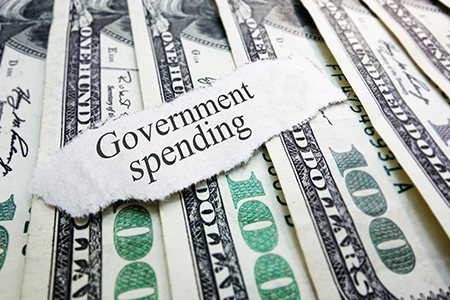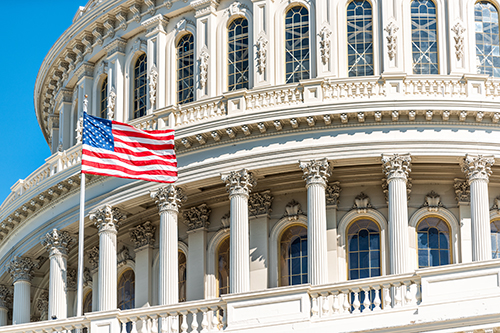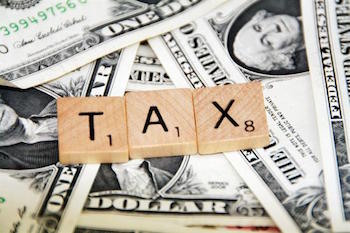Upcoming Priorities for the 86th Texas Legislature
 The Texas legislature began its 86th Legislative session this week by swearing in 19 Republican and 12 Democrat Senators, and 83 Republican and 67 Democrat Representatives. Lawmakers in Austin are expected to address several important topics during the 140-day session; among them are property taxes, school finance, Harvey relief funding, drivers licenses for non-citizens, and marijuana decriminalization.
The Texas legislature began its 86th Legislative session this week by swearing in 19 Republican and 12 Democrat Senators, and 83 Republican and 67 Democrat Representatives. Lawmakers in Austin are expected to address several important topics during the 140-day session; among them are property taxes, school finance, Harvey relief funding, drivers licenses for non-citizens, and marijuana decriminalization.
Property Taxes & School Finance
When it comes to recent property taxes in Texas, it’s all about public school funding. Beginning 10 years ago and following every legislature after, state lawmakers have voted to decrease the state’s portion of public school funding. Although the Texas Constitution mandates that the state fund public schooling so that children across the state in both property-rich and property-poor counties can have access to a proper education, a decade ago, the state provided 48.5 percent of education funding, compared to 38 percent this year. This reduction in state funding has led school districts to become increasingly reliant on local property taxes for their funding, further increasing the school tax portion that already makes up about half of most Texas property owners’ property tax bills.
To address this issue, Governor Greg Abbot has proposed a plan that would cap the growth of property tax revenue school districts could collect without a public vote to 2.5 percent a year. Abbot's plan would require the state to increase education funding, which would ultimately reduce residents’ property taxes. For lawmakers, the difficult part of this solution will be deciding where the state will find its new funds for education.
It is not likely that Republican lawmakers will want to raise state taxes to gather the funds, so one place they could find funding for education would be the state’s rainy day fund, which is currently made up of over $12.5 billion in excess tax revenues it has accumulated since 1989. If lawmakers decide the fund should be saved for stabilization purposes during a potential recession, then perhaps the state could keep it at the current amount and start to divert the excess oil and gas productions that have made up the fund over the years towards education. Although this could potentially cost future Texans in the middle-term should an economic or natural disaster crisis occur, it would lower costs for Texans today in the short-term, and if a higher quality of education for Texas’ children is achieved, it would more than pay for itself in the long-term.
The Texas Commission on Public School Finance has also recommended some fixes to improve the quality of Texas’ public schooling, including “incentivizing districts to improve student outcomes, paying effective teachers higher salaries, eliminating unnecessary elements of the state funding formula and providing property tax relief.” Senator Jose Menendez (D-San Antonio) has proposed giving every Texas school teacher a $4000 raise.
Harvey Relief Funding
According to the Legislative Budget Board, the state is likely to spend at least $860 million and up to $2 billion to cover increased aid from the Texas Education Agency. The money will be used to repair and replace damaged schooling infrastructure and equipment, as well as to make up for lost school property tax revenues due to properties that decreased in value as a result of the storm.
Drivers Licenses for Non-Citizens
State Rep. Ramon Romero Jr., D-Fort Worth, filed a bill last November for non-citizens who have jobs and no criminal record to be allowed to get a provisional driver’s permit via House Bill 35. In order to apply for the permit, applicants would be required to be paying the proper income taxes through the use of ITINs. This would also ensure that applicants’ employers are paying the proper employment taxes and allow the applicants to obtain car insurance.
Marijuana
Last June, the Republican Party of Texas approved planks that endorse decriminalizing marijuana and increasing access to medicinal marijuana and industrial hemp. House Bill 63 would decriminalize marijuana in smaller amounts than an ounce, and Senate Bill 90 would allow doctors in Texas to prescribe medicinal marijuana for diseases and disorders where it has been scientifically proven to have benefits, like PTSD, cancer, multiple sclerosis, and more. In Texas currently, medicinal marijuana is only legally available to certain patients with epilepsy.
The legalization of medicinal and eventually recreational marijuana in Texas could have social consequences, but it would also have significant fiscal benefits. In 2018, Colorado, a state with a population less than 1/5th of Texas, generated over $250 million in Marijuana taxes, licenses and fee revenues for the state government. Legal marijuana taxes could be part of the answer to Texas’ school finance and property tax problems, and only those who choose to use it would have to pay the new fees and taxes.








